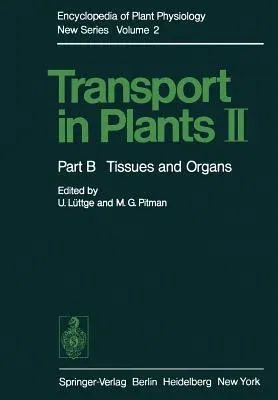Transport in Plants II: Part B Tissues and Organs (Softcover Reprint of the Original 1st 1976)Paperback - Softcover Reprint of the Original 1st 1976, 21 December 2011

Qty
1
Turbo
Ships in 2 - 3 days
In Stock
Free Delivery
Cash on Delivery
15 Days
Free Returns
Secure Checkout
Part of Series
Encyclopedia of Plant Physiology
Part of Series
Encyclopedia of Plant Physiology / Transport in Plants II
Part of Series
Transport in Plants II
Print Length
456 pages
Language
English
Publisher
Springer
Date Published
21 Dec 2011
ISBN-10
3642662323
ISBN-13
9783642662324
Description
Product Details
Book Edition:
Softcover Reprint of the Original 1st 1976
Book Format:
Paperback
Country of Origin:
NL
Date Published:
21 December 2011
Dimensions:
24.41 x
16.99 x
2.54 cm
ISBN-10:
3642662323
ISBN-13:
9783642662324
Language:
English
Location:
Berlin, Heidelberg
Pages:
456
Publisher:
Series:
Weight:
780.18 gm

